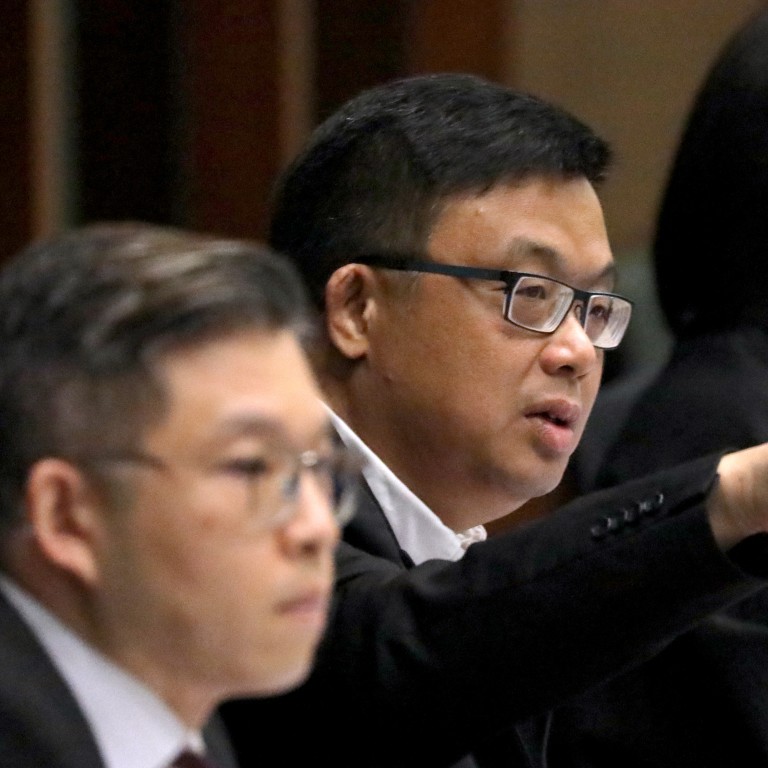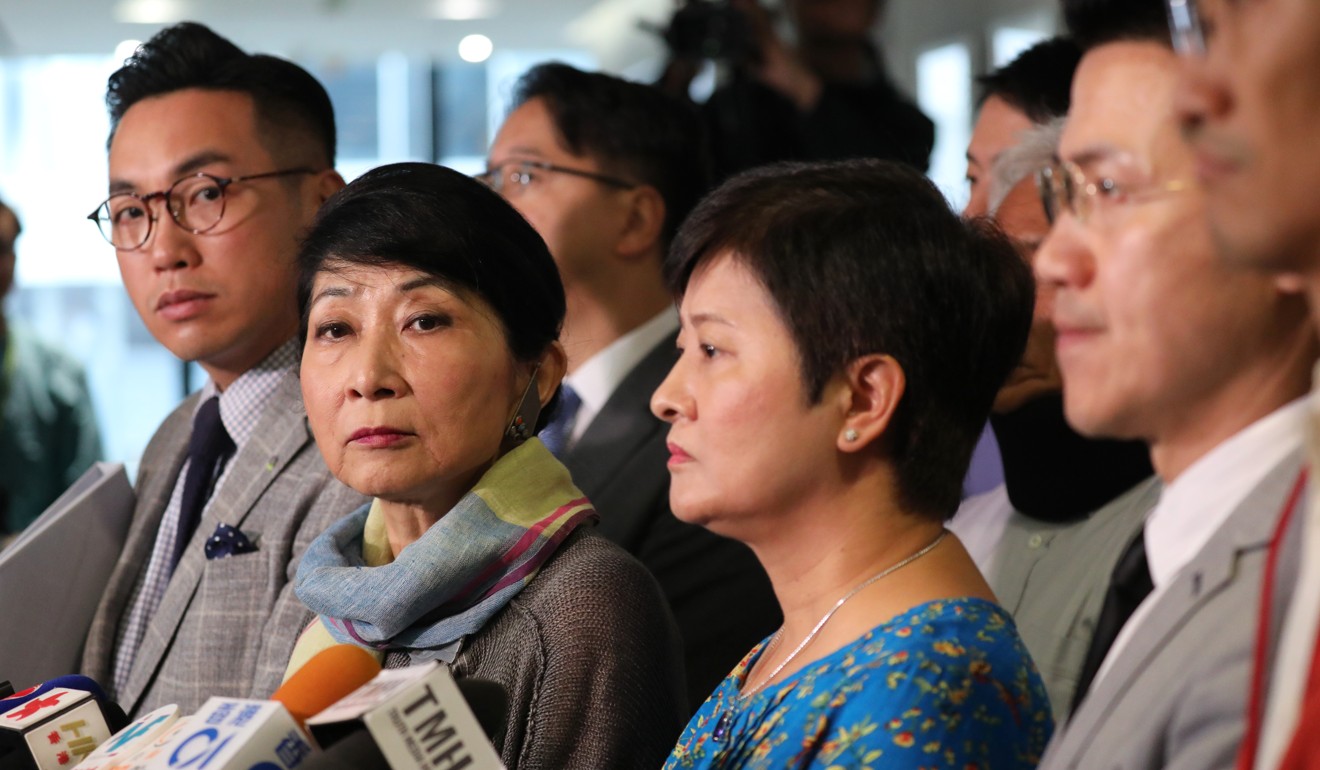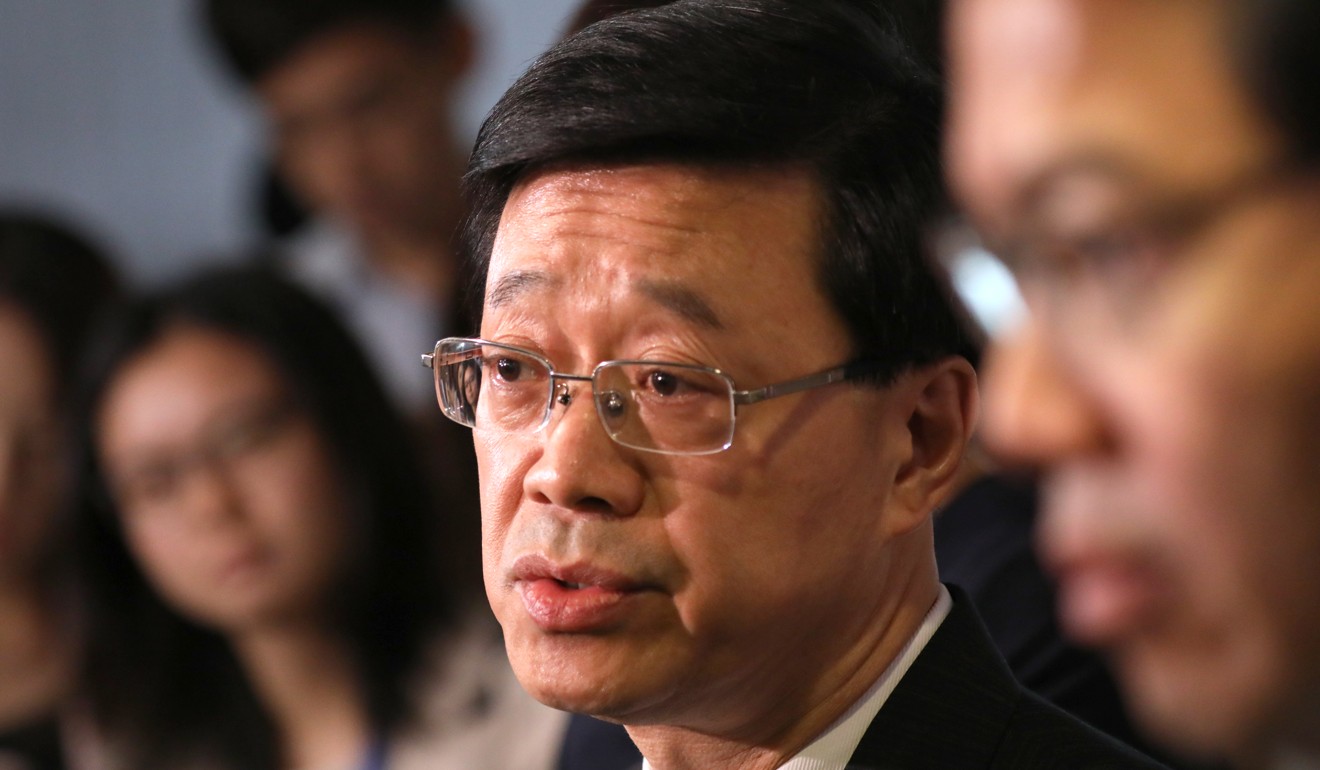
Extradition bill sparks paralysing row in Hong Kong’s legislature
- Committee scrutinising bitterly contested proposal fails to select chairman again as pro-democracy legislators seek to stall legislative process
An unprecedented procedural row over delaying tactics by opposition lawmakers in Hong Kong’s legislature is threatening to paralyse the government’s efforts to fast track a controversial law to allow the transfer of fugitives to Taiwan, Macau and mainland China.
On Tuesday, 42 pro-establishment lawmakers took an extraordinary step in demanding the official removal of a colleague from the rival camp presiding over a Legislative Council committee scrutinising the extradition bill at the centre of the storm.
The move to unseat Democratic Party stalwart James To Kun-sun came after lawmakers from his pan-democratic camp again succeeded in stalling discussion on the legislative amendment, which brought tens of thousands of protesters onto the streets on Sunday.
The bill, if passed, would allow the transfer of fugitives on a case-by-case basis to jurisdictions the city does not have an extradition treaty with. The prospect of including mainland China in particular is strongly opposed by critics who do not trust the legal system across the border and fear Hongkongers may be victimised for political reasons.

Proponents of the bill were on Tuesday considering various options to retain control over its passage after the pro-democracy lawmakers again thwarted attempts to get started by selecting a chairman for the committee.
James To automatically presides over the body by virtue of his seniority until a chairman can be installed, but the pan-democrats have resorted to filibustering to block the process with the aim of holding up the bill.
Hong Kong government caught on the hop by Sunday’s mass protest but it has very little wriggle room to withdraw controversial extradition bill
Tuesday’s drama marked the second time in two weeks that lawmakers succeeded in slowing the proceedings, despite Hong Kong’s leader having stressed the “absolute urgency” to push the bill through.
The government was spurred to act by the case of student Chan Tong-kai, 20, who is wanted in Taiwan over the murder of his pregnant girlfriend on the self-ruled island. The absence of a formal treaty with Taiwan has prevented his extradition.
He was jailed for 29 months by Hong Kong’s High Court on Monday over money laundering charges, but could be released as early as October – officials fear he may flee the city to escape justice if the new legislation is not implemented by then.

“We feel extremely disappointed that the committee could not elect a chairman within the four hours of the meeting,” said Martin Liao Cheung-kong, convenor of the pro-establishment bloc.
“James To and the pro-democracy camp are clearly trying to paralyse the legislative process and we find that totally unacceptable.”
Estimated 130,000 protesters join march against proposed extradition law that will allow transfer of fugitives from Hong Kong to mainland China
In response, the 42 pro-establishment legislators issued a joint petition addressed to Starry Lee Wai-king, chairwoman of Legco’s House Committee, asking her to replace To with their ally Abraham Razack.
Lee agreed to a special four-hour meeting set for Saturday to deal with their request.
Razack is the third most senior lawmaker after To and pan-democrat Leung Yiu-chung. But the proposal to insert him goes against the long-standing Legco convention that the most veteran lawmaker preside over bills committee meetings.
Liao argued this rule did not apply to meetings beyond the first one.

“Based on Legco’s rules of procedure, only the first meeting is chaired by the most senior lawmaker. Other than that ... there’s no rule,” Liao insisted.
The pro-establishment camp’s argument rests on a clause which states the House Committee “may provide guidelines” for bills committees.
Bookseller Lam Wing-kee leaves Hong Kong for Taiwan, fearing proposed extradition law will mean he is sent to mainland China
However, former House Committee chairwoman Miriam Lau Kin-yee said she failed to see the basis for the proposal to unseat To, saying the work of a bills committee should not be interfered with.
“Based on Section 76 (11) of the rules of procedure, a bills committee only needs to ‘take into account’ guidelines issued by the House Committee,” Lau said. “In other words, the bills committee will need to consider the guidelines, but does not necessarily have to follow.”
Security minister John Lee Ka-chiu said he was “extremely disappointed” by Tuesday’s impasse.

Claudia Mo Man-ching of the pro-democracy Council Front admitted wanting to delay progress but said it was up to the public to decide if it was justified. “We are trying to stall the passage of this very controversial … amendment as much as possible,” she said.
Lau said Legco conventions such as the one stipulating the most senior lawmaker preside over committees existed for a reason.
“If rules are written but not followed, Legco could be in chaos,” she said, urging lawmakers to elect a chairman at the next meeting.
To said the efforts to unseat him risked bringing down Legco’s entire legislative process.
Man who killed girlfriend in Taiwan could be free by October, setting effective deadline for Hong Kong government’s extradition plan
“It’s a guideline, not an order,” he said of the House Committee’s ability to intervene. “I very much doubt the House Committee has the power to order specifically a step or procedure be adopted.”
Pressing ahead could even provoke a judicial review, he warned.
Legco’s secretariat said it would study the demands of the pro-establishment lawmakers and supply Starry Lee with detailed opinions, but did not clarify whether To would have to follow guidelines from the House Committee.
The next meeting of the bills committee was likely to take place on Monday afternoon, To said.
Meanwhile, the New York City Bar Association has joined the chorus of international criticism of the bill.
The association has written to Chief Executive Carrie Lam Cheng Yuet-ngor, urging her administration to rescind the bill, which it said would seriously undermine rule of law protections for anyone visiting or living in the city.


